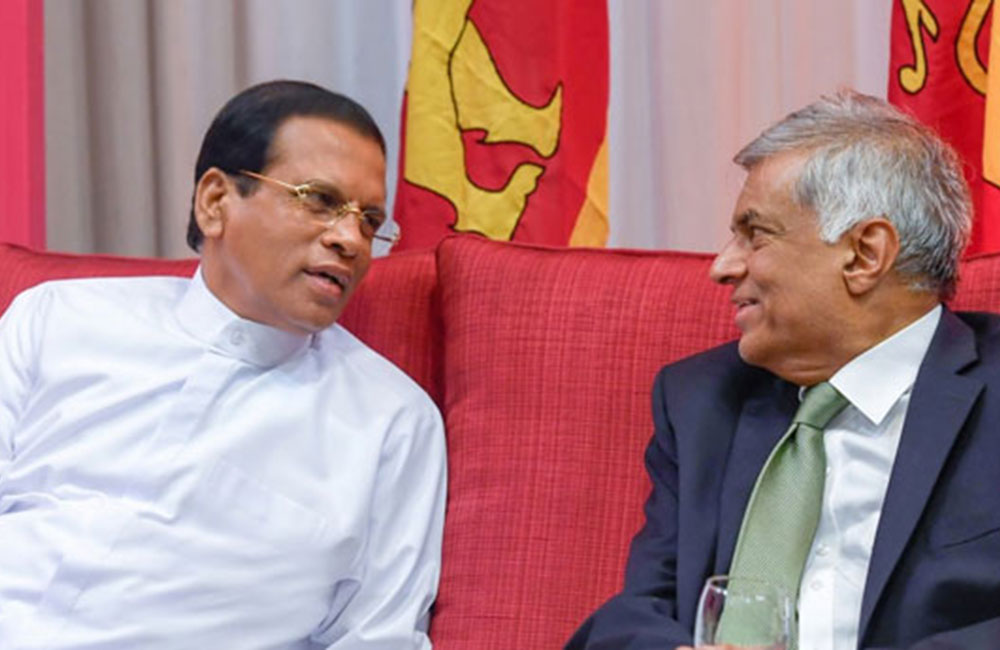After three weeks of political turmoil, Sri Lanka’s controversially dismissed Prime Minister, Ranil Wickremesinghe, appears to have gained the upper hand. A majority of lawmakers backed a no-confidence motion in Parliament against Mahinda Rajapaksa, a former President who was sworn in Prime Minister on October 26.
The Speaker declared the motion to have been passed by voice vote, as Mr. Rajapaksa’s loyalists sought to block the motion being taken up. Mr. Rajapaksa himself walked out of the parliamentary chamber before the vote was taken, with his supporters questioning the no-trust motion being taken up with such urgency. This contention could pale before the fact that as many as 122 MPs, in a House of 225, signed a memorandum expressing lack of confidence in his government to the Speaker. The noisy scenes and attempts to disrupt the vote reflected the deep divisions between the country’s main national parties.
Mr. Sirisena’s decisions in the last three weeks have been against the letter and spirit of the Constitution, especially the reforms enacted in 2015 to curb the vast powers that come with his office. He removed the Prime Minister despite constitutional restrictions on doing so and had another sworn in. He prorogued Parliament to delay the demonstration of a parliamentary majority by Mr. Rajapaksa. On being confronted with the reality that the numbers were stacked against Mr. Rajapaksa, the President dissolved the legislature itself. The House was revived by an interim order from the Supreme Court.
It is now clearer than ever that Mr. Sirisena had needlessly plunged the country into a deep crisis by replacing the Prime Minister without ascertaining the numbers in the House. It is quite surprising that Mr. Rajapaksa, whose political instincts ought to have made him decide otherwise, agreed to be sworn in solely on the premise that he could induce crossovers.
With these two leaders smarting under the setback in Parliament, it is difficult to consider the latest development as the end of political uncertainty. Mr. Sirisena needs to appoint a new Prime Minister immediately, but is averse to Mr. Wickremesinghe returning to that office. He had earlier indicated that he offered the post to two other members of Mr. Wickremesinghe’s United National Party, but had to appoint Mr. Rajapaksa as they had turned down the offer. It would be untenable if he lets Mr. Rajapaksa continue as a lame duck Prime Minister by again invoking his powers to prorogue the House.
It is time that Mr. Sirisena, who was elected on a promise of political and institutional reform, showed some statesmanship and found a way to work with Mr. Wickremesinghe again. It would be unwise for him to further exacerbate the crisis. He would do better to turn the page and focus on problems such as Sri Lanka’s bleak economic situation and unresolved minority concerns.
Note: Editorial today (15) by "The Hindu".

Leave your comments
Login to post a comment
Post comment as a guest